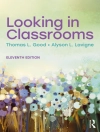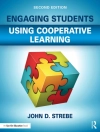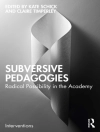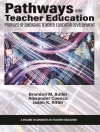From the 23rd to 26th of November 2009 in La Palma island, in the Canaries, the Comparative Education Society in Europe (CESE) organized an international symposium entitled PISA under Examination: Changing Knowledge, Changing Tests, and Changing Schools. During four days seventeen leading scholars of Europe and America presented their contributions to debate the different problematiques of the remarkable phenomenon represented by the OECD Programme for International Student Assessment or PISA. PISA is not merely an educational event. It is also a media circus which involves the public rehearsal for reasons for failure or success; and even, in some cases, public and political and academic explanations about why ‘failure’ was not really that, and why ‘success’ was not really that either. At the centre of all these indications, we find the growing influence of international agencies on education and schooling which is decisively contributing to a marketisation of the field of education, in the context of an increasingly multilevel and fragmented arena for educational governance based on the formulation, the regulation and the transnational coordination and convergence of policies, buttressed at the same time by the diffusion of persuasive discursive practice. Organized in four sections entitled The Comparative Challenges of the OCDE PISA Programme, PISA and School Knowledge, The Assessment of PISA, School Effectiveness and the Socio-cultural Dimension, PISA and the Immigrant Student Question, and Extreme Visions of PISA: Germany and Finland, the contributions of this book offers a comprehensive approach of all these challenging and significant issues written from different and distinct research and academic traditions.
Зміст
Preface and acknowledgments; 1. PISA under examination: Changing knowledge, changing tests, and changing schools; Section I: The comparative challenges of the OECD PISA programme; 2. PISA as a political instrument: One history behind the formulating of the PISA programme; 3. PISA: Numbers, standardizing conduct, and the alchemy of school subjects; 4. Constructing the OECD programme for international student assessment; 5. The dissatisfaction of the losers: PISA public discourse in Ibero-American countries; Section II: PISA and school knowledge; 6. The context for interpreting PISA results in the USA: Negativism, chauvinism, misunderstanding, and the potential to distort the educational systems of nations; 7. PISA, international comparisons, epistemic paradoxes; 8. Competencies vs. interculturalty. Student exchanges in the age of PISA; Section III: The assessment of PISA, school effectiveness and the socio-cultural dimension; 9. The introduction of state-wide exit examinations: Empirical effects on math and english teaching in german academically oriented secondary schools; 10. The PISA girls and ticking the boxes an examination of students’ perspectives on PISA testing; 11. From the appealing power of PISA data to the delusions of benchmarking: Does that challenge any evaluation of educational systems?; 12. Are you on the educational production frontier? Some economic insights on efficiency from PISA; Section IV: PISA and the immigrant student question; 13. PISA’s potential for analyses of immigrant students’ educational success: The German case; 14. Why do the results of immigrant students depend so much on their country of origin and so little on their country of destination?; Section V: Extreme visions of PISA: Germany and Finland; 15. Education politics and contingency: Belief, status and trust behind the Finnish PISA miracle; 16. Concepts, cultures and comparisons. PISA and the double German discontentment; 17. CODA; Annexes Annex I Visualizing PISA scientific literature versus PISA public usage; Annex II The Poster Exhibition; Annex III PISA a examen, cambiar el conocimiento, cambiar las pruebas y cambiar las escuelas; Notes on contributors.












